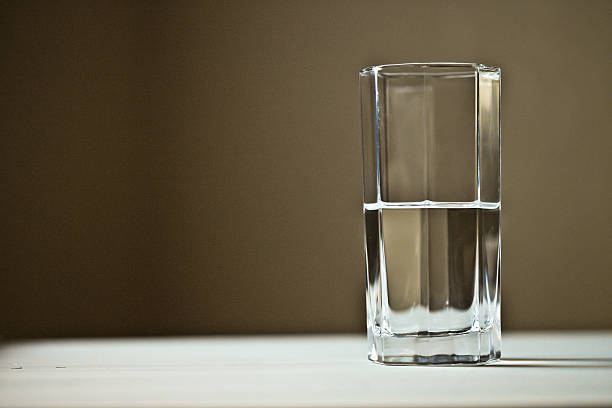“The way you see the problem, is the problem” – Steven Covey

For the uninitiated, mindset can be defined as a person’s way of thinking towards a situation. The way you act when confronted by a particular situation is governed by your mindset. Since life is all about occurrence of various situations therefore, the way you cultivate your mindset determines your quality of life.
In sports, some players who are supremely gifted with regards to their athletic abilities succumb under pressure of big occasion whereas, certain players who even though are not as gifted as their peers, seem to rise to the big occasions and thrive. Mahendra Singh Dhoni has had glaring shortcomings in terms of technique, yet he managed to become one of the legends of the game of cricket.
Dennis Lillee, the legendary Australian fast bowler once said, “Cricket is 90% mental, 10% is skill.” This statements is true not only for cricket but also for life : Life is 90% mental, 10% is skill. Your mindset decides your quality of life. Now thanks to scientific studies, there are strong tangible proofs that underline the importance of mindset in determining the quality of our life.
Thinking Away The Pounds
One of the key researchers in the area of mindsets Is Alia Crum. Crum is an American psychologist who researches mindsets and how they affect human behaviour, as well as physical and mental health outcomes. In of the key researches aptly titled ,“Mindset Matters” , Crum recruited housekeepers at seven hotels across the United States for a study of how beliefs affect health outcomes and weight. Housekeeping at hotels involves things such as lifting mattresses to make beds, picking towels off the floor, pushing heavily loaded carts and vacuuming. Therefore, housekeeping is strenuous work and burns over 300 calories an hour. As exercise, that puts it on par with weight lifting, water aerobics and walking at 5.6 kilometers an hour. Yet, two-thirds of the housekeeping staff that Dr. Crum recruited, believed they weren’t exercising regularly. One-third said that they weren’t exercising at all. Their perception of them having a sedentary lifestyle reflected on their bodies too. The average housekeeper’s blood pressure, waist-to-hip ratio, and body weight were exactly what you’d expect to find if he were truly sedentary.
To change the perception of the housekeepers Crum had recruited, she designed a poster that described how housekeeping qualified as exercise. At four of the seven hotels, Crum communicated this information to the housekeepers in a fifteen minute presentation. Crum told them that they were clearly meeting or exceeding the surgeon general’s recommendations for physical exercise and should expect the health benefits of being active. The housekeepers at the other three hotels were a control group, i.e: they received information about how important physical exercise is for health but they were not told that their work qualified as exercise.
Four weeks later, Crum checked in with the housekeepers. Those who had been informed that their work counted as exercise had lost weight and bodyfat. Their blood pressure was also lower. They had not made any changed in their behaviour outside work. The only thing that had changed was their perception of themselves as exercisers. In contrast, housekeepers of the 3 hotel which constituted the control group, showed none of these improvements.
By the above experiment, Dr. Crum concluded that that when two outcomes are likely – in this case, the health benefits of exercise or the exhaustion caused by physical labour- a person’s expectations influence which outcome is more likely. The housekeepers’ perception of their work as healthy exercise, transformed it’s effects on their bodies. In other words, the effect you expect is the effect you get.
Believe Yourself Healthy
To further strengthen her claims, Dr. Crum carried out another substantial study, funnily titled “Mind Over Milkshakes”. As a part of the study, participants were invited to come to the laboratory after an overnight fast. On their first visit, participants were given a milkshake labeled “Indulgence : Decadence You Deserve” with a nutritional label ominously showing, 620 calories and 30 grams of fat. On their second visit, one week later, they drank a milkshake labeled “Sensi-Shake : Guilt Free Satisfaction,” with 140 calories and zero grams of fat.
As the participants sucked in their milkshakes, their blood samples were drawn simultaneously. Crum was measuring changes in blood levels of ghrelin, also known as the hunger hormone. When blood levels of ghrelin go down, you feel full; when blood levels of ghrelin go up, you start feeling pangs of hunger. When you eat a high caloric food, ghrelin levels drop dramatically, whereas the reverse impact is observed when consuming less filling foods.
As one would expect, on consuming the high caloric Indulgence shake, there was a big drop in ghrelin levels in the blood. Whereas on consuming Sensi-Shake with lower calorie led to only a small decline in ghrelin.
However, there was a catch. The milkshake labels were a sham. Both times, participants had been given the same 380-calorie milkshake. Since both the milkshakes were same, there should have been no difference in how the participants’ digestive tracts responded. Yet, when they believed that the shake was an indulgent treat, their ghrelin levels dropped three times as much as when they thought of it as a diet drink. Again highlighting that the effect people expected-in this case, fullness – was the outcome they got.
In both the housekeeping and the milkshake studies, when people’s perceptions changed, their bodies’ responses changed. And in each study, one particular belief seemed to enhance the body’s most adaptive response : Viewing physical labour as exercise helped the body experience the benefits of being active. Viewing a milkshake as a high calorie indulgent diet helped the body produce signals of fullness.
The above studies give concrete evidence to the hypothesis that when confronted by a situation with multiple possible outcomes, the way we perceive the situation determines how our body reacts to it. Thus, be it housekeeping, milkshakes or adversities in life, our mindset determines our experiences in life.
Dear reader, if you liked this article you will also like : How To Develop Good Habits.
Subscribe to our Weekly Newsletter to get the latest from The Fitonation Blog delivered directly to your inbox.
Also, don’t forget to check out our YouTube Channel by clicking on the following link : Fitonation YouTube Channel.
You can connect with us on Instagram, LinkedIn.
Please let me know, According to you how was the above article ? Your feedback is invaluable to us. Thanks for reading ! 🙂
